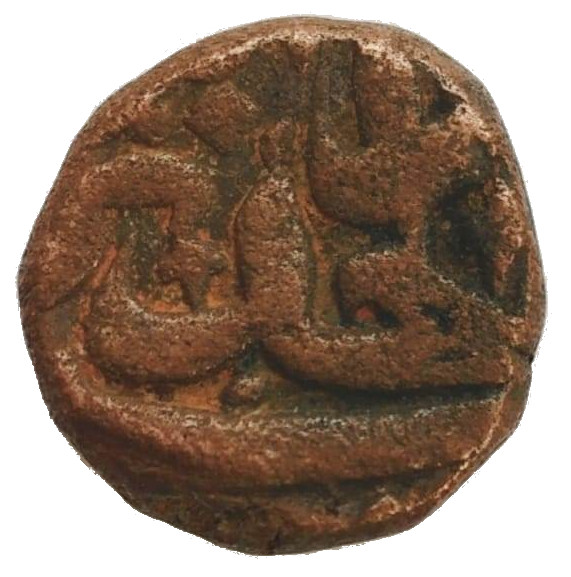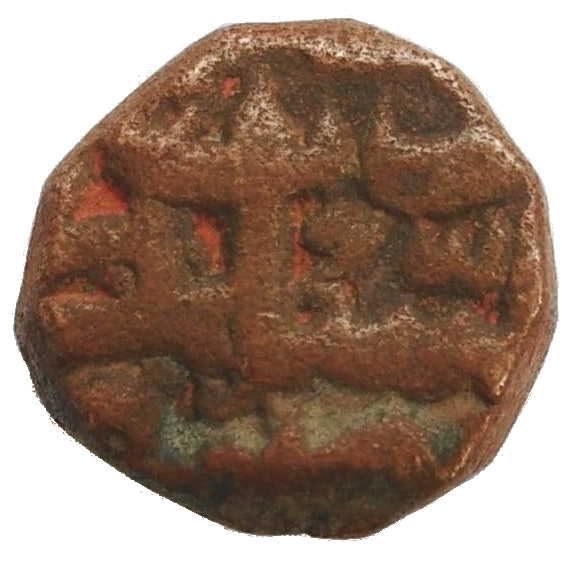

Ahmadnagar, Sultanate of 1 Falus
Description:
1 Falus 1 Falus coin from Ahmadnagar, Sultanate of. Design, history & value.
1. Introduction
The 1 Falus copper coin from the Sultanate of Ahmadnagar, dating back to the years 1591-1595, holds a significant place in numismatic history. This coin not only serves as a tangible link to a bygone era but also embodies the artistry and craftsmanship of that time.
2. Historical Background
During the late 16th century, the Sultanate of Ahmadnagar, located in present-day Maharashtra, India, issued this copper coin as a part of its monetary system. These coins were an essential medium of exchange and played a crucial role in the economy of the region.
3. Design Features
The obverse of the 1 Falus coin typically features intricate calligraphy or geometric patterns, often including inscriptions in Arabic script denoting the ruler's name and titles. On the reverse, symbols like stars, crescents, or floral motifs might be present, showcasing the artistic flair of the minters.
4. Technical Specifications
This coin has a weight of 13.55 grams and a diameter of 20.38mm, making it substantial yet convenient for everyday transactions. Crafted from copper, these coins were durable and widely accepted throughout the Sultanate.
5. Collectible Value
Today, the Sultanate of Ahmadnagar's 1 Falus copper coin is highly sought after by collectors and enthusiasts of Indian medieval numismatics. Its historical significance, coupled with its scarcity due to limited mintage and survival rates, contribute to its growing collectible value.
6. Conclusion
In conclusion, the Sultanate of Ahmadnagar's 1 Falus copper coin from the period of 1591-1595 stands as a testament to the rich numismatic heritage of India. Its exquisite design, historical importance, and collectible allure make it a prized possession for any coin collector interested in the fascinating history of the Ahmadnagar Sultanate. By delving into the details of this coin, one can appreciate not only its monetary value but also the cultural and historical context from which it emerged. The Sultanate of Ahmadnagar's 1 Falus serves as a tangible reminder of a time long past, encapsulating the artistry and sophistication of coinage during the late 16th century.
Coin Images
 Obverse
Obverse
 Reverse
Reverse

ScanMyCoin: AI Coin Recognition
Professional AI coin recognition and collection management platform. Identify, learn, and track your coin collection with advanced AI technology and a vast.